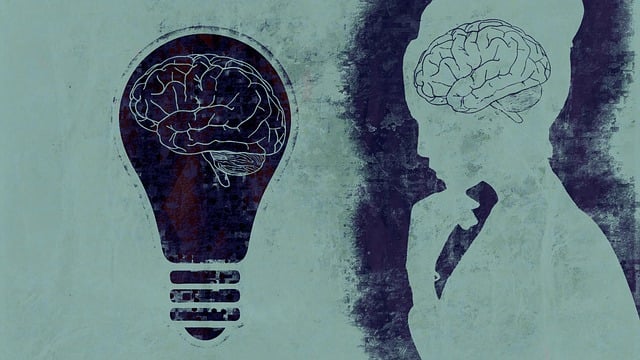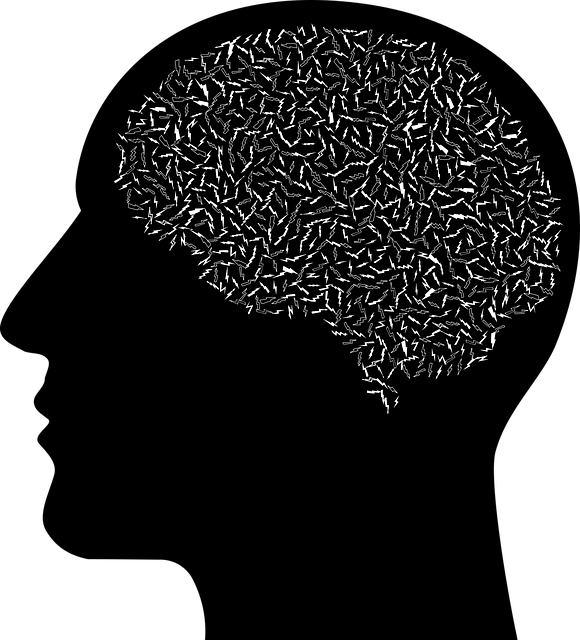Castle Rock Eating Disorders Therapy employs a multi-faceted approach to emotion regulation, focusing on identifying triggers, cognitive reframing, mindfulness practices, and behavioral techniques like CBT. Through Mental Health Education Programs, patients gain emotional intelligence tools for self-reflection, communication, and improved self-esteem. This holistic strategy enables individuals to manage their emotional landscape adaptively, reducing eating disorder symptoms and fostering long-term mental well-being.
Emotion regulation techniques are essential tools for managing mental health, especially in addressing conditions like eating disorders. This comprehensive guide explores effective strategies to help individuals navigate and control their emotions. We delve into understanding the significance of emotion regulation and its role in recovery. By identifying triggers and early warning signs, cognitive strategies, mindfulness practices, and behavioral techniques, Castle Rock Eating Disorders Therapy offers a roadmap to fostering emotional resilience.
- Understanding Emotion Regulation and its Significance
- Identifying Triggers and Early Warning Signs
- Cognitive Strategies for Managing Emotions
- Mindfulness Practices to Cultivate Present-Moment Awareness
- Behavioral Techniques for Building Emotional Resilience
Understanding Emotion Regulation and its Significance

Emotion regulation is a vital skill that enables individuals to manage and understand their feelings effectively. It involves recognizing and accepting emotions, as well as learning how to respond to them in healthy and constructive ways. This process is particularly crucial for those facing challenges like eating disorders, where emotional dysregulation can exacerbate symptoms and hinder recovery. Castle Rock Eating Disorders Therapy emphasizes the importance of teaching individuals strategies to navigate their emotional landscape.
A well-designed Mental Health Education Program can empower people by providing tools for self-reflection, communication strategies to express emotions, and techniques to foster self-esteem improvement. These programs are designed to enhance emotional intelligence, allowing individuals to respond adaptively to stressful situations and regulate their emotions before they escalate. By integrating these skills into daily life, Castle Rock Eating Disorders Therapy supports long-term mental health and well-being.
Identifying Triggers and Early Warning Signs

Identifying triggers is a crucial step in managing emotions and preventing escalation. In Castle Rock Eating Disorders Therapy, professionals often guide individuals to recognize early warning signs—subtle cues that signal an emotional shift or impending crisis. These may include physical sensations like increased heart rate or tension in the body, as well as cognitive changes such as intrusive thoughts or a sense of losing control. By learning to identify these triggers and warning signs early on, individuals can take proactive measures to regulate their emotions effectively.
Understanding personal triggers is essential for implementing burnout prevention strategies, especially for healthcare providers. The Stress Management Workshops Organization promotes techniques like mindfulness and compassion cultivation practices to help professionals navigate high-stress situations. Similarly, recognizing these early signals in Castle Rock eating disorder therapy allows clients to develop personalized emotion regulation skills, fostering better mental health outcomes and resilience.
Cognitive Strategies for Managing Emotions

Cognitive strategies play a pivotal role in emotion regulation techniques teaching, empowering individuals to manage their emotional responses effectively. This involves identifying and challenging negative thought patterns that can escalate feelings of distress. By questioning the validity of distorted thoughts, one can replace them with more balanced and realistic perspectives. For instance, during moments of anger or anxiety, Castle Rock Eating Disorders Therapy suggests acknowledging the underlying triggers—whether it’s a specific situation, memory, or thought—and then consciously reframing these triggers to gain a different perspective.
The process often includes practices like mental wellness journaling exercises, which encourage individuals to reflect on their emotions and thoughts. This reflection allows for the identification of recurring patterns and provides an opportunity to apply resilience-building strategies. Crisis intervention guidance can also be incorporated, offering tools to navigate intense emotional states until more lasting cognitive reframing techniques are mastered.
Mindfulness Practices to Cultivate Present-Moment Awareness

Mindfulness practices play a crucial role in cultivating present-moment awareness, a fundamental aspect of emotion regulation techniques teaching. By focusing on the here and now, individuals can learn to observe their thoughts and emotions without judgment, fostering a deeper understanding of their internal experiences. This mindfulness approach, often integrated into Castle Rock Eating Disorders Therapy, empowers individuals to develop emotional resilience.
Through regular practice, such as mindful breathing exercises or body scans, people can enhance their ability to recognize early signs of distress, allowing them to respond mindfully rather than reacting impulsively. These practices not only aid in the emotional healing processes but also promote empathy building strategies by encouraging a non-reactive and compassionate stance towards oneself and others.
Behavioral Techniques for Building Emotional Resilience

Behavioral techniques play a pivotal role in building emotional resilience and managing mental health, especially for individuals dealing with eating disorders like those seeking Castle Rock Eating Disorders Therapy. These methods offer practical tools to help people navigate their emotions more effectively. One such technique is cognitive behavioral therapy (CBT), which focuses on identifying and changing negative thought patterns that contribute to distressing emotions. By challenging these thoughts and replacing them with healthier alternatives, individuals can develop a more adaptive perspective, reducing the intensity of emotional reactions.
Moreover, learning relaxation strategies like deep breathing exercises, meditation, or progressive muscle relaxation enables people to manage stress and anxiety symptoms. These techniques promote mindfulness and help individuals become more attuned to their bodily sensations and emotions. Regular practice fosters self-awareness, enabling better decision-making regarding when and how to employ these strategies in daily life. This proactive approach is crucial in the long-term management of mental health conditions and can significantly contribute to success in Stress Management Workshops Organization and Mental Illness Stigma Reduction Efforts, enhancing overall emotional intelligence.
Emotion regulation techniques are invaluable tools for personal growth and well-being. By understanding and managing our emotions effectively, we can enhance our mental health and overall quality of life. The strategies discussed in this article, including identifying triggers, cognitive restructuring, mindfulness, and behavioral techniques, offer a comprehensive framework for navigating emotional challenges. Incorporating these practices into daily routines can foster resilience and promote a healthier relationship with one’s emotions. For those seeking specialized support, Castle Rock Eating Disorders Therapy provides expert guidance to empower individuals in their emotional journey.














